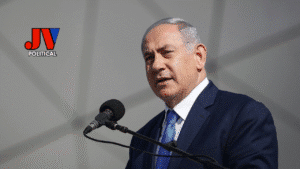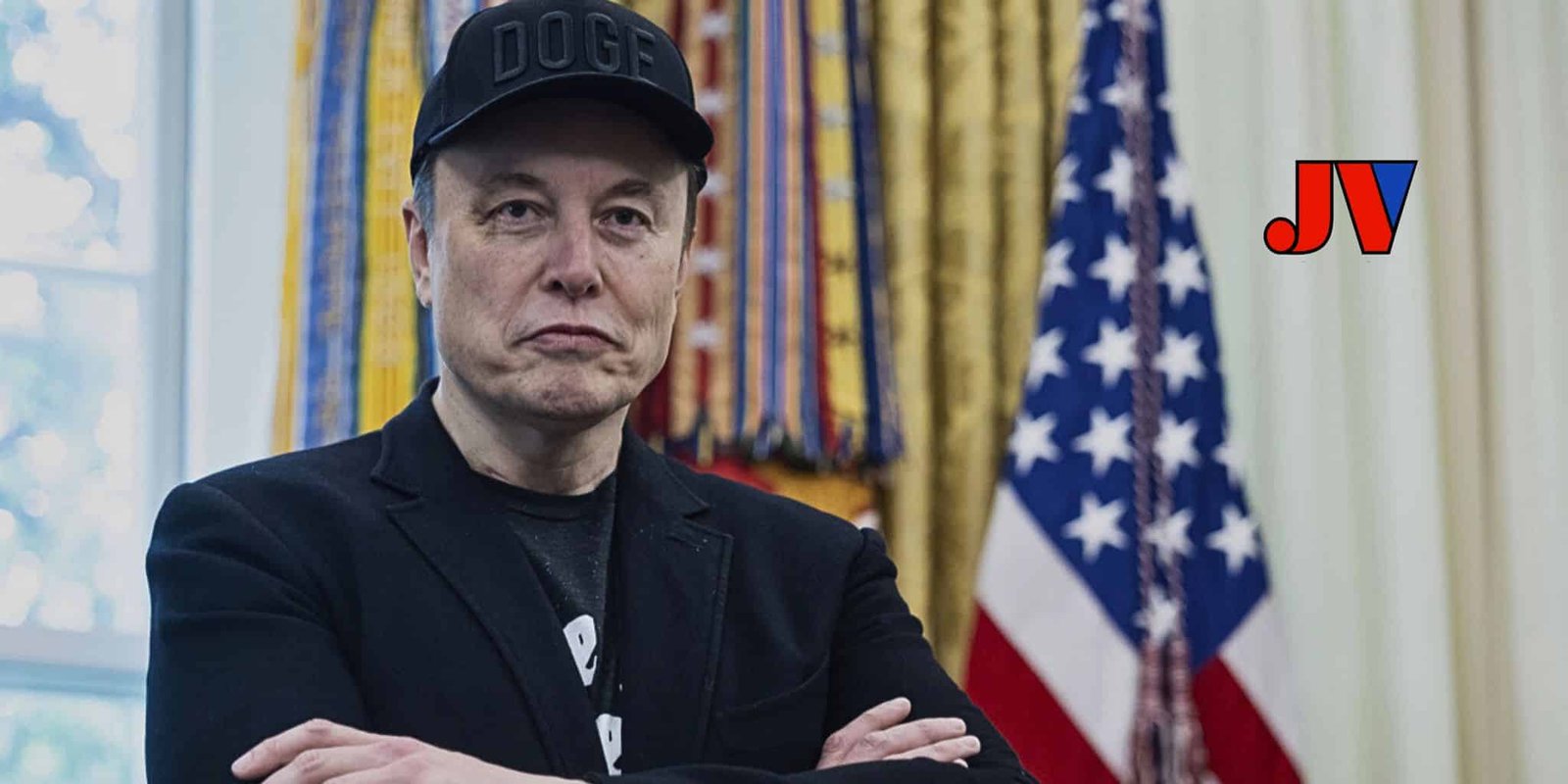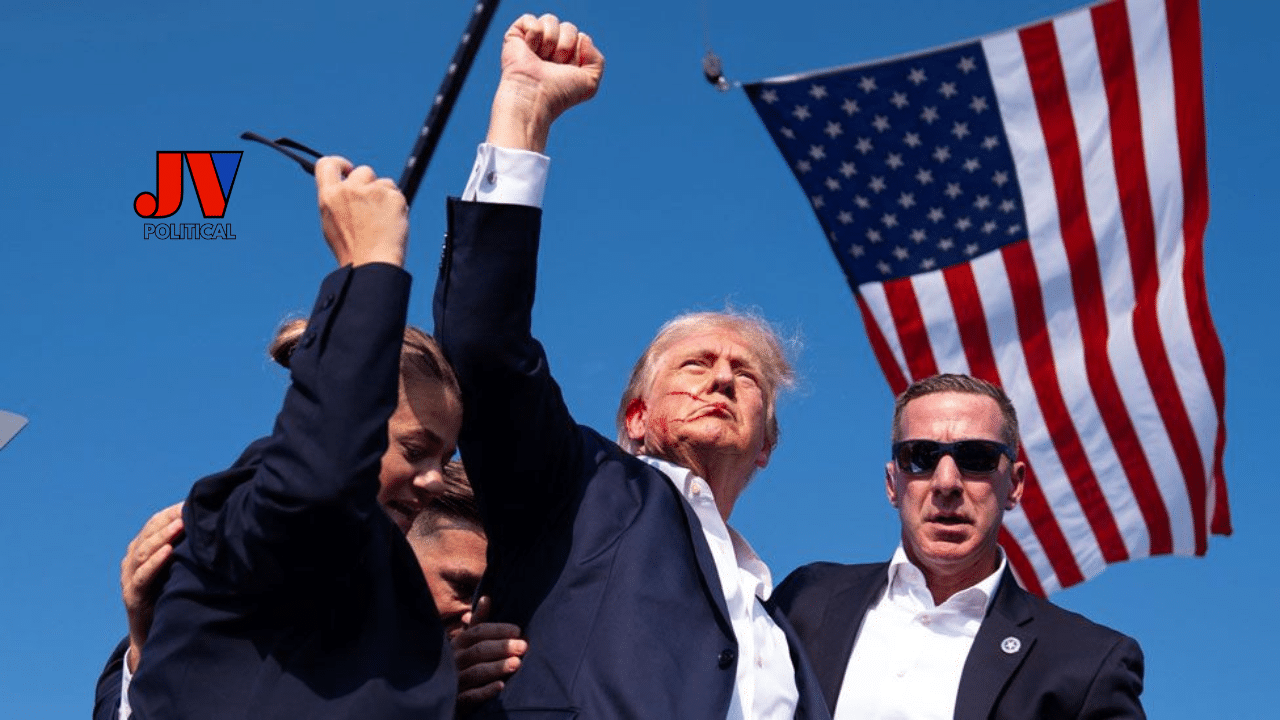US Intel: Israel Poised to Strike Iran Amid Rising Tensions
According to U.S. intelligence reports Israel is planning military strikes on Iran which has left the Middle East in a tense state. According to NBC News and subsequent reports from multiple sources this development raises concerns about increasing conflict in an already unstable region. For conservatives who value strong national security and decisive action against threats, this news raises critical questions: Can Israel be seen as acting justifiably when they consider attacking Iran’s nuclear installations? How might the proposed military actions affect both U.S. foreign policy and the stability of the world? JV Political conducts an in-depth analysis of Israel’s possible action by examining its strategic, political and moral implications. Get updated through our conservative analysis of this critical moment and discover its impact on America and global affairs.
Why Israel Is Considering a Strike on Iran
Iran’s Nuclear Ambitions: A Clear and Present Danger
The nuclear program of Iran continues to present a major threat to Israel and its allied countries. The Islamic Republic has worked towards acquiring nuclear abilities for many years because observers think it wants to build nuclear weapons. Israel, being a small country bordered by unfriendly nations, sees Iran’s potential nuclear weapons as a direct threat to its survival. Israel sees this moment as the “perfect time” to attack Iran’s nuclear facilities according to recent reports covered by NBC News. Iran’s progress in uranium enrichment together with its rejection of international inspections creates urgency.
Key Concern: Iran’s Fordow facility and Natanz facility reportedly have the ability to produce uranium suitable for nuclear weapons.
Israel’s Stance: Prime Minister Benjamin Netanyahu has made multiple promises to stop Iran from developing nuclear weapons by any necessary means.
Conservative View: A nuclear-armed Iran poses a risk to both Israel and U.S. interests because it could promote terrorism and create regional instability.
Houthi Attacks and Iran’s Proxy War
The possibility of Israel launching a strike connects to Iran’s support for proxy groups including the Houthis operating in Yemen. Israeli defense plans include possible strikes against Iranian targets due to Houthi attacks on Israeli interests as reported by Ynet. Conservatives view Iran’s support for Hezbollah, Hamas, and the Houthis as a hostile network that poses a fundamental threat to Western security and values.
Houthi Threat: The Houthis launched missile and drone assaults against Israeli naval vessels and urban areas resulting in major disruptions to shipping lanes.
Iran’s Role: Tehran extends its power by supplying funding and weapons while providing training to these groups without engaging in direct conflict.
Strategic Response: Through military strikes Israel seeks to diminish Iran’s capacity to coordinate attacks and warn its allied groups.

U.S. Involvement: Ally or Bystander?
What U.S. Intelligence Reveals
According to U.S. intelligence sources, intercepted communications show Israel is preparing a military strike. Posts on X demonstrate that sources such as @spectatorindex and @clashreport have reported Israel’s discussions with U.S. officials concerning attacks on Iran’s nuclear facilities. The Biden administration has yet to clarify its position which causes conservative groups to worry about America’s allegiance to its ally.
Intelligence Insights: Although the United States expresses worry about Iran’s nuclear developments its leaders remain reluctant to support military intervention.
Conservative Critique: Critics view the Biden administration as weak on Iran while Trump’s “maximum pressure” campaign devastated Iran’s economy.
The U.S.-Israel Alliance at a Crossroads
Recent reports from @UKR_Report on X indicate that Israel is considering a unilateral course of action. The current situation challenges the fundamental U.S.-Israel partnership that serves as a fundamental element of conservative foreign policy. The United States traditionally backs Israel’s right to self-defense yet Washington’s political divisions may make coordination difficult.
Bipartisan Support: Conservatives maintain that support for Israel remains essential because of shared democratic principles and strategic interests.
Risk of Isolation: Should the U.S. reduce its support for Israel, international backlash could isolate Israel and strain diplomatic relationships.
Global Implications of an Israeli Strike
Middle East Powder Keg
A military strike on Iran risks triggering a wider war by involving Iran’s allies such as Syria and Hezbollah and pulling Russia into the conflict. If immediate action isn’t taken conservatives believe Iran will hasten its nuclear development which will result in a more hazardous future.
Escalation Risks: Iran could respond by using proxy forces or launching direct missile attacks against Israel which would heighten regional tensions.
Oil Markets: A halt to Iranian oil shipments could trigger a surge in worldwide energy costs which would adversely affect American consumers.
Conservative Solution: Although it carries risks, preemptive action supports a forward-thinking approach to combat tyranny and terrorism.
Impact on U.S. Foreign Policy
Conservatives see backing Israel’s attack as part of their wider plan to counteract Iran’s harmful influence in the region. The United States under Trump administration leadership facilitated the Abraham Accords which established normalized relations between Israel and multiple Arab nations to form an Iran-opposed coalition. This alliance could become stronger through a successful strike yet faces potential weakening from tactical errors.
Strengthening Alliances: Alliance between Israel and Gulf states holds potential to prevent Iranian aggression.
Domestic Politics: When faced with military decisions regarding Israel conservatives tend to support strong pro-Israel policies while progressives often denounce military escalation.
The Moral Case for Action
Defending Democracy Against Tyranny
Conservatives see Israel’s planned attack as a battle for liberty against a tyrannical government. The government of Iran operates as a theocracy which oppresses its citizens, supports terrorist organizations and poses a threat to democratic countries. The American principles of liberty and justice support Israel’s right to self-defense.
Human Rights: The Iranian government practices executions against dissidents while oppressing women which became evident during the Mahsa Amini protests of 2022.
Moral Clarity: Conservatives see support for Israel as an opposition to evil which mirrors Reagan’s approach to facing threats.
The Cost of Inaction
The historical record proves that giving into aggressive behavior inevitably results in catastrophic outcomes. The 1930s demonstrate how international passivity enabled Nazi Germany to expand without restraint. The achievement of nuclear capabilities by Iran would strengthen a regime that regularly proclaims “Death to America” and “Death to Israel.”
Historical Parallel: The appeasement strategy of Neville Chamberlain proved unsuccessful which means immediate decisive action must be taken.
Future Risks: If Iran acquires nuclear capabilities Saudi Arabia and other nations could start pursuing their own weapons.
What Should Conservatives Do?
Advocate for Strong U.S. Support
Conservative leaders must insist that the Biden administration offer definite support to Israel. The United States needs to extend intelligence support alongside military assistance and diplomatic backing at the U.N. to Israel. Grassroots activities such as contacting representatives and sharing pro-Israel content help spread this message.
Call Your Congressman: Insist that the government expresses clear support for Israel’s right to self-defense.
Social Media: Use JV Political content to combat narratives that oppose Israel.
Prepare for Economic Fallout
Conservatives should push for energy independence as a protective measure against market disruptions and price shocks in oil markets. A principal goal is to revive domestic oil production while cutting dependence on foreign energy sources.
Drill, Baby, Drill: Increasing U.S. oil and gas production will help stabilize energy prices.
Support Pipelines: Initiatives similar to the Keystone XL pipeline project can strengthen national energy security.
Conclusion
The potential Israeli attack on Iran stands as a defining moment for Middle Eastern stability and American diplomatic strategy. Our conservative viewpoint considers Israel’s military actions justified in countering Iran’s pursuit of nuclear weapons and their use of proxy forces. JV Political stands resilient against freedom-threatening forces while extending support to our allies during their battles for survival. The path forward contains numerous dangers yet failing to act remains unacceptable. Participate in the discussion below by sharing your opinion on Israel’s strategy and America’s next steps. Join JV Political to receive breaking news and conservative insights and help maintain pressure for a secure and robust future.
References
NBC News, “Israel told US officials now is the perfect time to destroy Iran’s nuclear facilities.”
Ynet, “Israel is looking into launching strikes on Iranian targets in response to Houthi attacks.”
X Post by @spectatorindex, May 11, 2025.
X Post by @UKR_Report, May 11, 2025.
X Post by @clashreport, May 11, 2025.















4 Responses
What does U.S. intelligence say about Israel’s plans to strike Iran?
U.S. intelligence suggests Israel is preparing to strike Iran’s nuclear facilities, based on intercepted communications, observed military movements, and statements from senior Israeli officials. Preparations include mobilizing weapons and conducting air force exercises, though no final decision has been confirmed.
Why is Israel considering a strike on Iran’s nuclear facilities?
Israel views Iran’s nuclear program as a major threat, especially with stalled U.S.-Iran nuclear talks and Iran’s refusal to halt uranium enrichment. Israel sees Iran’s weakened state—due to recent Israeli strikes on its air defenses and missile factories—as an opportunity to act.